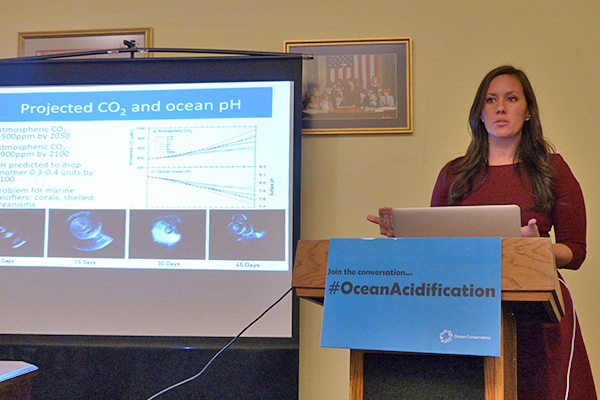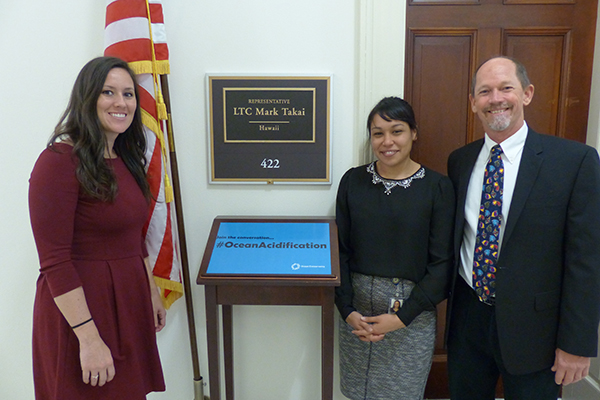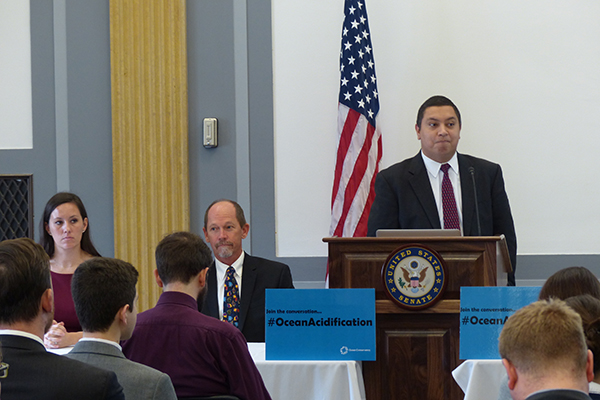


Sea change
UD's Dixson discusses ocean acidification at White House briefing
8:58 a.m., Dec. 4, 2015--As high-level climate talks continue at the 2015 Paris Climate Conference (COP21), the University of Delaware’s Danielle Dixson spoke to legislators and staffers at a White House briefing on ocean acidification (OA) held Wednesday, Dec. 2.
The briefing, hosted by U.S. Rep. Mark Takai and U.S. Sen. Mazie Hirono of Hawaii, the Ocean Caucus and the Ocean Conservancy, was designed to raise awareness of the current and future consequences of OA. Ocean acidification is the ongoing decrease in pH in the global ocean due to the absorption of excess carbon dioxide from the atmosphere.
Research Stories
Chronic wounds
Prof. Heck's legacy
Dixson, an assistant professor in the College of Earth, Ocean, and Environment’s School of Marine Science and Policy, discussed her work to understand how human induced changes, such as OA, affect marine animals, particularly fish and corals.
It is known that OA impacts shell formation and development in marine calcifying organisms such as corals and shellfish.
In her presentation, Dixson explained how marine animals sense their environment, how they use this information to make decisions, and the consequences these behavioral choices have on marine conservation and management in a changing world.
Dixson’s research was the first to demonstrate that ocean acidification has an impact on behavioral decisions in fish. Her study revealed that while the fish grow the same and seem normal, they spend more time away from their habitat, they no longer learn from one another, and they become bold and aggressive. These cognitive and behavioral changes cause inappropriate responses to important information, which equates to a 5-9 times increase in mortality.
Equally important is habitat degradation. Coral reefs are degrading at an alarming rate due to global warming, ocean acidification, pollution and runoff, among other things, raising important questions about the future sustainability of marine life that call the reefs home.
Dixson explained that additional research is needed to prevent further coral reef decline. In particular, reef organism behavior can no longer be ignored and must be considered when evaluating ways to improve and preserve coral reef ecosystems.
Article by Karen B. Roberts










